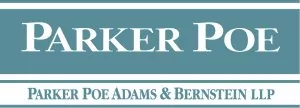Several years ago, voluntary sustainability reporting in proxy statements, annual reports to shareholders, websites and special sustainability reports to various stakeholders began to take hold, even as the SEC continued to resist calls for mandatory sustainability reporting and even in the general absence of guidance regarding what to disclose and how. (See this Doug's Note.) Around the same time, several non-profit organizations formed for the purpose of bringing order to these disclosures. Among them was the Sustainability Accounting Standards Board (SASB), which enjoys a board of directors made up of a particularly distinguished list of executives, investors, professionals and academics, and chaired by Michael Bloomberg.
Since then, sustainability reporting has continued to increase in quantity and quality, and SASB has maintained its position as a well-known, respected standard-setter. In keeping with the maturation of these disclosures, SASB recently published an interesting and detailed "staff bulletin" describing its Approach to Materiality for the Purpose of Standards Development.
The bulletin explains the SASB's efforts to align its disclosure standards with existing federal securities law concepts of materiality (as set forth, for example, in TSC Industries v. Northway, Basic v. Levinson and the SEC's MD&A rules and guidance). It caught my eye because the alignment of mandatory SEC reporting and voluntary sustainability reporting is essential not only to effective disclosure controls and procedures, but also to consistent and meaningful stakeholder communications.
Because sustainability issues vary according to a particular industry's business model, methods of competition, use of resources and impact on society, SASB provides disclosure standards for 79 industries divided into ten industry sectors:
- Healthcare
- Financials
- Technology & Communications
- Non-renewable Resources
- Transportation
- Services
- Resource Transformation
- Consumption
- Renewable Resources & Alternative Energy
- Infrastructure
SASB then identifies industry-specific topics that it concludes are reasonably likely to be material to investors to "ensure that an appropriate standard exists for cost-effective, decision-useful disclosure in mandatory SEC filings." Companies are encouraged to begin with these guidelines and then adapt them to their own specific circumstances.
All of that is to say that if your company does not currently engage in sustainability reporting, it would be good to consider whether your internal or external stakeholders would benefit from it at some level. If so, you should consider the resources of SASB or similar standard-setters. It's entirely possible that your competitors already have.
This Client Alert is intended to inform readers of recent developments in the field of (torts & insurance law, employment and employee benefits law, immigration law, etc.) It should not be considered as providing conclusive answers to specific legal problems.

